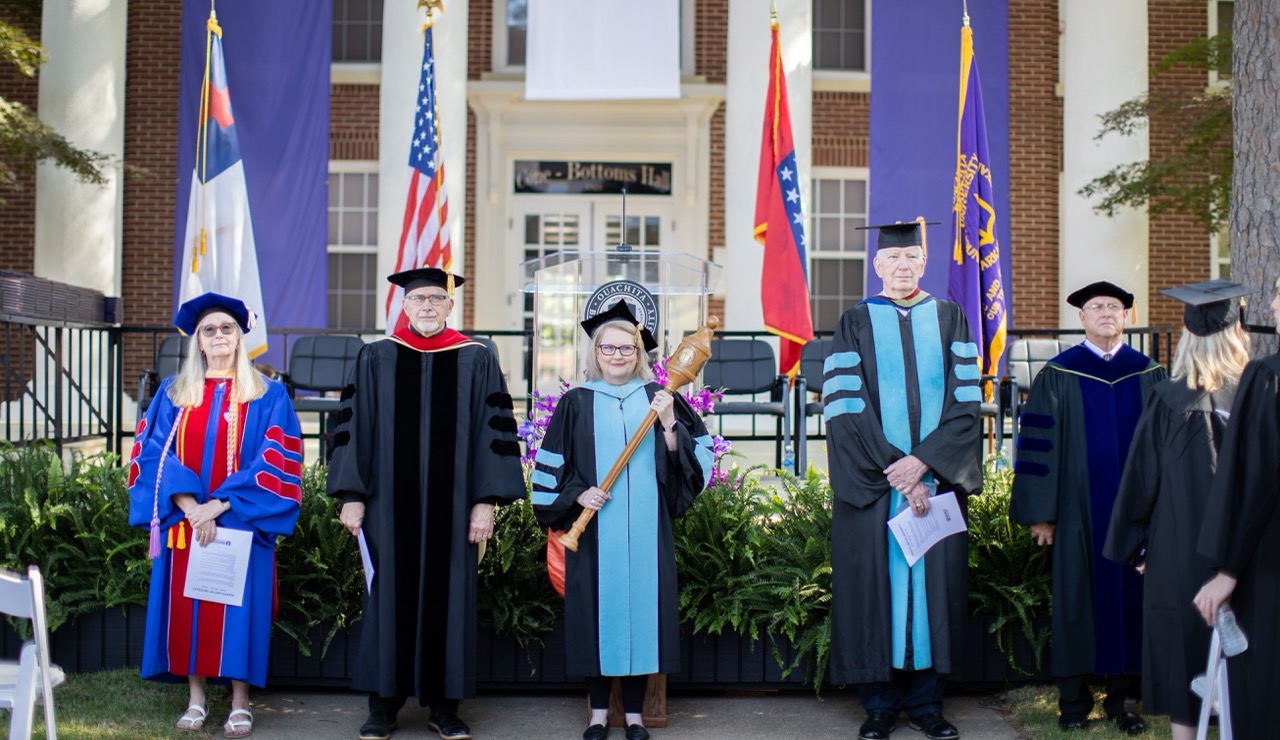Birkett Williams lecturer addresses “The Paradox of Choice”
October 23, 2008 - Rebecca Rambin
Dr. Barry Schwartz, professor and author, visited Ouachita Baptist University Oct.
14 as part of the Birkett Williams lecture series. He spoke on his new book “The
Paradox of Choice: Why More is Less,” which addresses the value of choice and the
psychological problems it can cause.
Schwartz, the Dorwin P. Cartwright Professor of Social Theory and Social Action at
Swarthmore College in Swarthmore, Penn., began writing his book two years ago but
began researching it almost 10 years ago.
"Schwartz’s book attempts to document the harmful social-psychological effects of
having too much choice, whether in the realm of groceries, appliances or health-care,"
said Dr. Mark Edwards, OBU assistant professor of history. Edwards said he was interested
in inviting Schwartz to OBU because he felt his argument against the abundance of
choice is important to anyone participating in today’s economy.
In a dinner preceding the lecture, Schwartz noted that the central tenant of economics
is power which is expressed through the value of choice. He added that many Americans
believe that “choice is the highest good.”
During the lecture, Schwartz identified the syllogism of choice: more choice means
more freedom and more freedom means more well-being. Therefore, more choice means
more well-being. “It is uncontroversial in the United States,” he said.
Schwartz said he disagreed with this argument, explaining, “When people choose from
a large set of alternatives they are less satisfied than they are when they choose
from a smaller set of alternatives.”
The two groups Schwartz outlined that deal with choice differently are “maximizers”
and “satisficers.” Maximizers try to search through every option exhaustively and
are less satisfied with their outcome than satisficers who think, “Good enough is
good enough,” he said. He also noted that “being a maximizer is not good for your
psychological health.”
Although Americans believe more choice is liberating and will therefore bring them
happiness, Schwartz said he finds that people are more pleased with constraints such
as close relationships.
“If there are no limits, life is unlivable,” he said. An endless amount of choices
either freezes people to not make a decision or they make the wrong choice. “Instead
of choosing on the basis of what matters, they choose on the basis of what is easiest
to evaluate,” he explained.
Ouachita’s Birkett Williams lecture series was established in 1977 through a gift
from the late Birkett L. Williams, a 1910 Ouachita graduate. His generous endowment
established the lectures as an opportunity to extend the concepts of a liberal arts
education beyond the classroom by bringing renowned scholars and public figures to
Ouachita’s campus.
by Rebecca Rambin
You Also Might Like
Ouachita reports Spring '26 enrollment, led by 50% increase in graduate students
February 11, 2026Recent
Ouachita reports Spring '26 enrollment, led by 50% increase in graduate students
February 11, 2026



